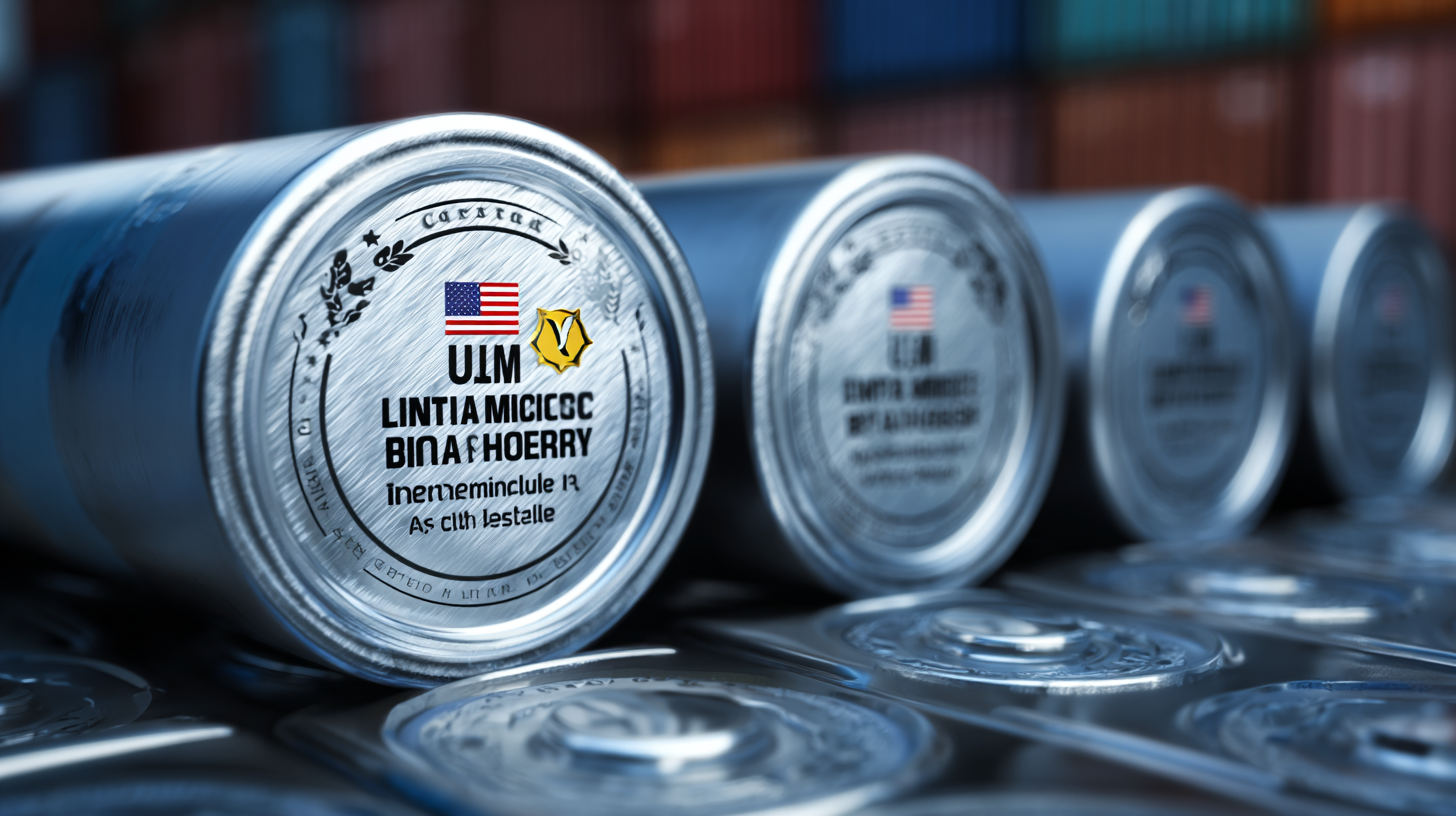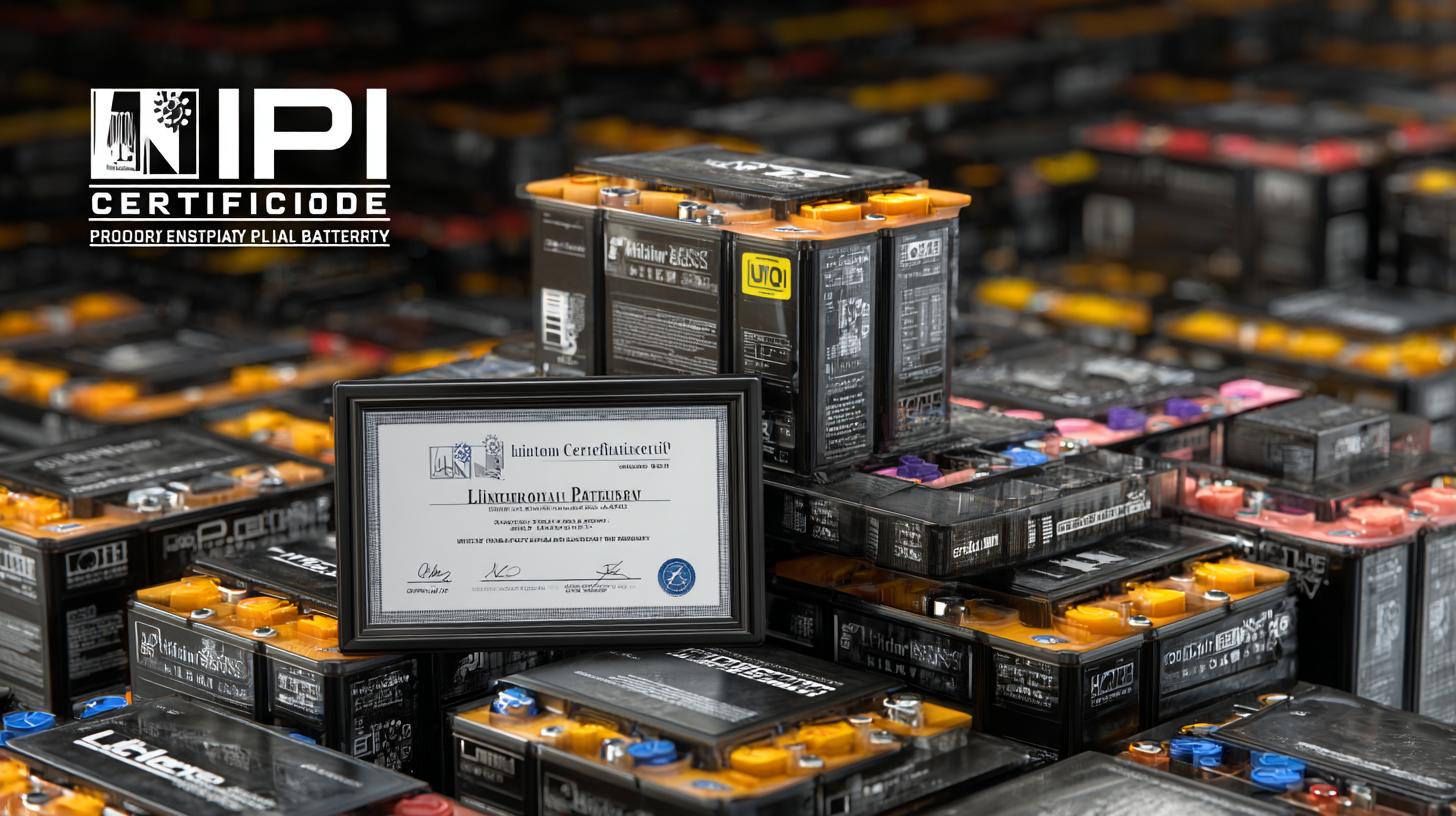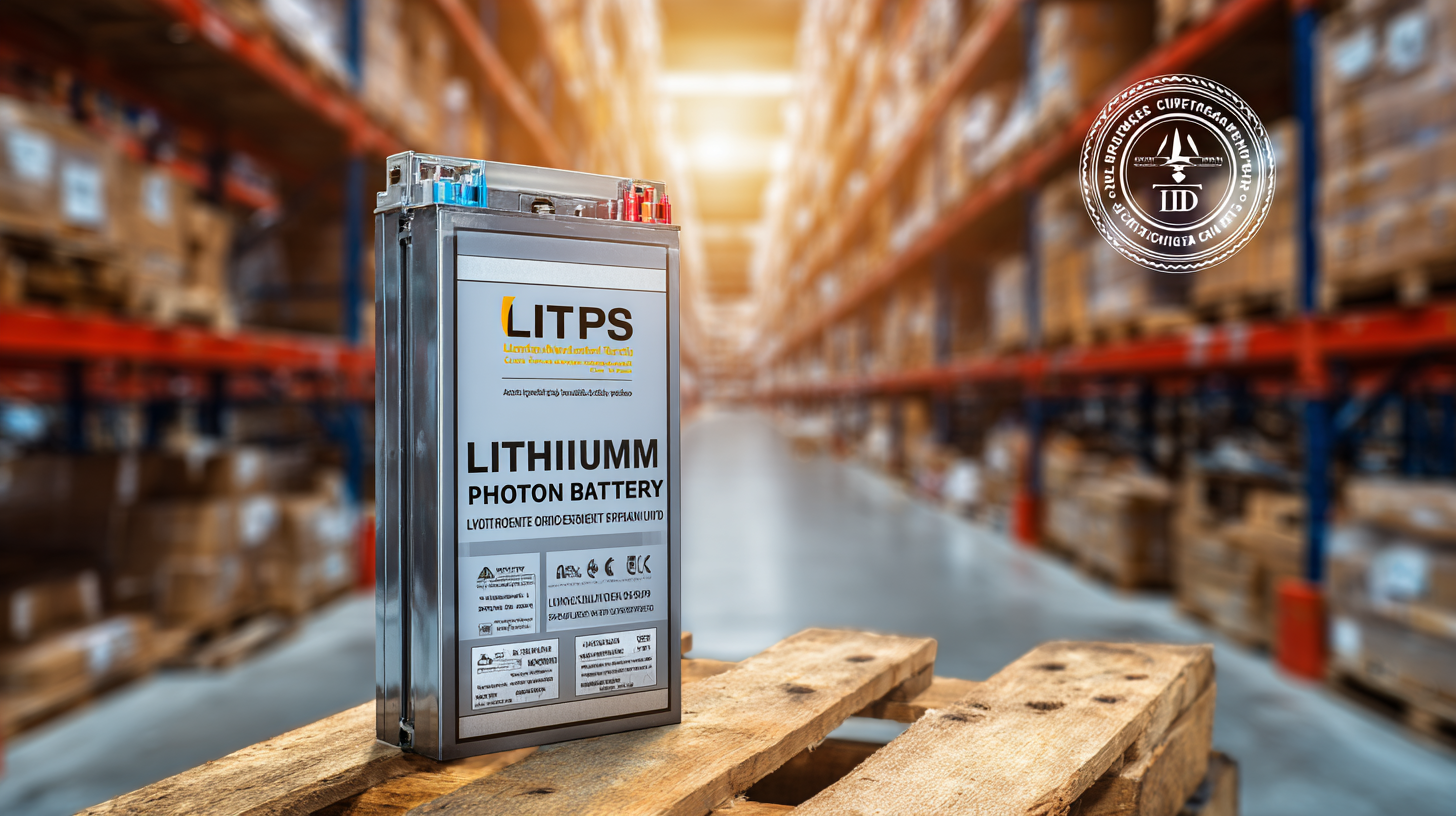The growing demand for sustainable energy solutions has propelled the lithium iron phosphate battery (LiFePO4) into the spotlight, particularly in electric vehicles and renewable energy storage systems. According to a market research report by Allied Market Research, the global lithium battery market is projected to reach $129.3 billion by 2027, with significant contributions from lithium iron phosphate batteries due to their safety, longevity, and thermal stability compared to other lithium-ion alternatives. Moreover, the International Energy Agency has noted that the adoption of electric vehicles could lead to an exponential increase in battery demand, driving innovation and regulatory scrutiny in import and export certifications. Navigating the complexities of these certifications is crucial for manufacturers and distributors to ensure compliance and optimize market access.

In this blog, we will explore the unique characteristics and applicable scenarios of different types of lithium iron phosphate batteries, providing insights into how to effectively manage the certification process for successful international trade.
When engaging in the import and export of lithium iron phosphate (LiFePO4) batteries, understanding regulatory requirements is paramount. Different countries impose various standards and certifications that must be met to ensure compliance. These regulations often include safety, performance, and environmental considerations. For instance, in the European Union, batteries must adhere to the Battery Directive, which emphasizes proper recycling and environmental protection. Additionally, certifications such as IEC 62133 are necessary to confirm that the batteries are safe for transport and use.
Furthermore, manufacturers and exporters must navigate documentation processes that can vary significantly across jurisdictions. This includes obtaining necessary permits, providing detailed product specifications, and ensuring compliance with customs regulations. Engaging with local regulatory agencies can help clarify specific requirements, as failure to comply may lead to shipment delays or fines. Establishing a rapport with experienced logistics and compliance partners can streamline this intricate process, ensuring a smooth and efficient transaction in the competitive battery market.
| Certification Type | Regulatory Body | Region | Validity Period | Application Fee |
|---|---|---|---|---|
| UN38.3 | International Air Transport Association (IATA) | Global | 2 years | $500 |
| CE Marking | European Committee for Standardization (CEN) | European Union | Indefinite, needs re-evaluation every 5 years | €1500 |
| UL Certification | Underwriters Laboratories (UL) | North America | 1 year | $2000 |
| RCM | Australian Communications and Media Authority (ACMA) | Australia | Indefinite | AUD 1000 |
| ISO 9001 | International Organization for Standardization (ISO) | Global | 3 years | $1500 |
 When considering lithium iron phosphate (LiFePO4) batteries for import or export, it's essential to understand the various certifications that ensure safety, performance, and regulatory compliance. These batteries must adhere to specific standards, which not only facilitate smoother trade but also boost consumer confidence. Key certifications to keep in mind include the UN38.3 for transportation safety, which evaluates batteries for safe shipping, and IEC 62133, which focuses on the safe operation and performance of secondary lithium batteries. Obtaining these certifications demonstrates adherence to international safety protocols.
When considering lithium iron phosphate (LiFePO4) batteries for import or export, it's essential to understand the various certifications that ensure safety, performance, and regulatory compliance. These batteries must adhere to specific standards, which not only facilitate smoother trade but also boost consumer confidence. Key certifications to keep in mind include the UN38.3 for transportation safety, which evaluates batteries for safe shipping, and IEC 62133, which focuses on the safe operation and performance of secondary lithium batteries. Obtaining these certifications demonstrates adherence to international safety protocols.
Additionally, certifications like CE and RoHS are crucial for markets in Europe. The CE mark signifies that the product meets EU safety, health, and environmental protection requirements, while RoHS ensures that the battery is free from hazardous substances. Other relevant certifications may include ISO 9001, which reflects quality management standards, and UL listings for fire safety and performance criteria, particularly in North American markets. Prioritizing these certifications not only helps in navigating the complexities of import and export but also aligns your products with the highest standards in the battery industry.
When engaging in the import and export of lithium iron phosphate (LiFePO4) batteries, obtaining the right documentation is crucial to ensure compliance with international regulations. One of the primary documents required is the Certificate of Origin, which verifies where the batteries are manufactured. This document is often critical for customs clearance and can impact tariff rates. It's essential to work with reputable suppliers who can provide accurate and verifiable certificates.
In addition to the Certificate of Origin, an import/export license is necessary for businesses looking to transport lithium iron phosphate batteries across borders. This license confirms that the company has the authority to move these goods and adheres to the relevant safety standards. Furthermore, safety data sheets (SDS) detailing the handling, storage, and emergency measures related to the batteries are required to mitigate risks and ensure that all parties understand the inherent hazards related to lithium-ion technologies. By gathering and maintaining these key documents, businesses can ensure smoother transactions and compliance in the global marketplace.
Navigating compliance with international standards for battery trade has become increasingly complex, particularly for companies in the lithium iron phosphate battery sector. With the implementation of the EU's carbon tariff and the new Battery Regulation, exporters are now facing stringent carbon emission regulations and intricate international ESG auditing standards. This landscape is prompting businesses to seek robust solutions to ensure compliance and maintain competitive advantage in global markets.
The establishment of innovative services, such as one-stop green compliance platforms, is crucial for supporting companies in their green transition. These platforms aim to streamline the compliance process, allowing manufacturers to meet the evolving requirements set by regulations in various regions, especially in Europe. As the global demand for electric vehicles rises, adopting sustainable practices not only aids in regulatory adherence but also enhances a company's reputation and marketability in the clean energy sector. Emphasizing the importance of collaboration and knowledge sharing among industry players will be key to overcoming the obstacles posed by these new international standards.

Navigating the certification process for lithium iron phosphate (LiFePO4) batteries can be complex but essential for manufacturers aiming to enter global markets. The International Electrotechnical Commission (IEC) outlines strict safety and performance standards that must be met. To streamline this certification process, it's crucial to understand the specific requirements for each region. For instance, compliance with IEC 62133 is mandatory in Europe, while the Underwriters Laboratories (UL) standards dominate the North American market. By mapping out these requirements early, manufacturers can save time and reduce the risk of costly delays.
In addition to understanding regulatory requirements, leveraging advanced testing facilities can enhance the efficiency of the certification process. According to a report by MarketsandMarkets, the global energy storage market is expected to grow at a CAGR of 21.6% from 2021 to 2026, highlighting the increasing demand for compliant energy solutions. Engaging with accredited laboratories that specialize in LiFePO4 batteries can expedite testing phases and ensure that all safety and performance criteria are met. Furthermore, real-time data sharing and collaboration with certification bodies can facilitate quicker approvals, allowing companies to focus on scaling their production and meeting market demands.


